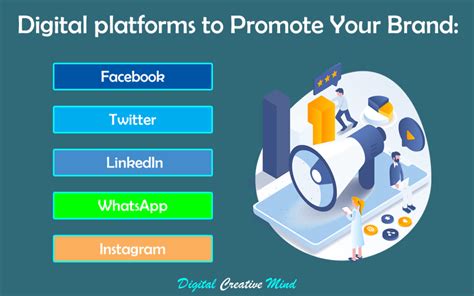Creating captivating narratives that engage, inform, and persuade is a paramount aspiration for every forward-thinking digital marketer. In the realm of contemporary digital media, effective content marketing strategies have become the driving force behind successful brand recognition and customer loyalty. To unlock the full potential of your online presence, it is essential to harness the power of engaging storytelling that resonates with your target audience.
When it comes to crafting compelling narratives, it's imperative to strike the delicate balance between captivating the reader's attention and delivering valuable information. This delicate dance requires a careful blend of artistry and strategy, incorporating elements such as persuasive language, vivid imagery, and a deep understanding of your target market's preferences and pain points. By employing these techniques, marketers can effectively create content that not only captures the reader's interest but also establishes a lasting connection with their brand.
Profoundly impactful stories are often woven around a central theme or narrative arc that sustains the reader's engagement from start to finish. While every brand tells a unique story, the underlying themes often center around relatable human experiences, whether it's overcoming adversity, achieving personal growth, or embracing societal change. By tapping into these universal themes, marketers can create content that strikes an emotional chord with their audience, fostering a sense of resonance and authenticity.
Discover and Understand Your Target Audience

When it comes to successfully promoting your brand or product, one crucial aspect is defining and understanding your target audience. By knowing who your target audience is, you can tailor your content marketing strategies to effectively reach and engage with them.
Identifying your target audience involves researching and analyzing specific demographic, psychographic, and behavioral characteristics of the people you want to reach. By gaining a deep understanding of their needs, interests, preferences, and pain points, you can create content that resonates with them on a personal level.
It is essential to define your target audience as precisely as possible. Don't just rely on broad categories like age or gender; dig deeper to uncover the motivations and aspirations that drive their decisions.
Through market research and customer analysis, you can create buyer personas that represent your ideal customers. These personas can help you develop content that speaks directly to their desires and challenges, positioning your brand as a solution provider.
Remember, your target audience is not static; as your business evolves, your audience may change as well. Continually monitor and evaluate customer behaviors, preferences, and market trends to ensure your content marketing strategies remain relevant and impactful.
In conclusion, defining your target audience is a fundamental step in creating effective content marketing strategies. By understanding the unique characteristics and motivations of your audience, you can tailor your content to meet their specific needs and build a strong connection with them.
Maximizing Content Reach: Conducting Comprehensive Keyword Research
Unlocking the true potential of your content requires a strategic approach to keyword research. By delving into the world of search queries, you can gain deep insights into your target audience's interests and needs, effectively structuring your content to capture their attention. Effective keyword research enables you to optimize your content for search engines and improve its discoverability, ultimately boosting your organic traffic and engagement.
Building a successful content marketing strategy begins with understanding the language and search terms your audience uses. By identifying relevant and trending keywords, you can create compelling content that resonates with their needs and preferences. Conducting thorough keyword research allows you to stay ahead of the competition, ensuring your content ranks higher on search engine result pages.
Dive into the vast sea of keywords related to your industry, products, or services, and explore their search volume, competition level, and relevance to your target audience. By selecting the right combination of high-volume keywords and long-tail keywords, you can craft content that effectively reaches your desired audience.
Utilize keyword research tools and platforms to gain in-depth insights into user intent. By analyzing search queries and patterns, you can uncover valuable data that helps you align your content with what your audience is actively seeking. This strategic approach enables you to provide relevant and valuable information, establishing your brand as a trusted authority in your field.
When conducting keyword research, pay attention to the intent behind different search queries. Focus on capturing not only informational queries but also transactional and navigational ones, aligning your content strategy with the various stages of the buyer's journey. By understanding the intent of your target audience, you can create content that not only attracts but also converts users into customers.
Effective keyword research involves monitoring keyword trends and adapting your content strategy accordingly. Stay up-to-date with industry-specific buzzwords and incorporate them into your content to ensure its relevance and freshness. By monitoring keyword performance and making data-driven adjustments, you can continuously optimize your content for maximum visibility and conversions.
In conclusion, conducting comprehensive keyword research is a crucial step in developing an effective content marketing strategy. By understanding your audience's language, preferences, and search behavior, you can create targeted and valuable content that captivates and converts. Stay proactive in your keyword research efforts, constantly adapting and refining your content to leverage the power of search engine optimization and maximize your content's reach.
Create Valuable and Relevant Content

When it comes to content marketing, one of the key strategies is to focus on creating valuable and relevant content that resonates with your target audience. By doing so, you can establish your brand as a thought leader, build trust with your audience, and ultimately drive more conversions.
First and foremost, it is important to understand your target audience and their needs. This will help you create content that is valuable to them and addresses their pain points. By identifying their interests, challenges, and aspirations, you can tailor your content to provide them with the information and solutions they are searching for.
In addition, it is crucial to stay up-to-date with the latest trends and developments in your industry. By staying informed, you can create content that is timely and relevant, positioning your brand as an authority in the field. This could include sharing industry insights, conducting interviews with experts, or offering analysis on current events.
Another effective approach is to provide actionable tips and advice. Your audience is likely seeking practical solutions to their problems, so by offering step-by-step guides, tutorials, or checklists, you can provide them with tangible value. This will not only position your brand as helpful and trustworthy, but also encourage engagement and sharing of your content.
Moreover, utilizing storytelling techniques can be a powerful way to engage your audience and make your content more memorable. By sharing real-life examples, case studies, or customer success stories, you can bring your content to life and establish an emotional connection with your readers.
Lastly, it is important to demonstrate your expertise through your content. This can be done by incorporating data, statistics, or research findings to support your arguments, as well as by citing credible sources and referencing industry experts. By showcasing your knowledge and expertise, you can gain the trust and respect of your audience.
In summary, creating valuable and relevant content is essential for effective content marketing. By understanding your audience, staying informed, providing actionable tips, utilizing storytelling techniques, and demonstrating your expertise, you can create content that resonates with your target audience and drives results for your brand.
Explore Diverse Content Formats to Optimize Your Marketing Approach
Enhance your content marketing strategy by utilizing a wide range of content formats, allowing you to captivate and engage your target audience more effectively. Incorporating various types of content into your marketing campaigns can help you deliver your message in a more appealing and impactful manner.
1. Use Written Content: Craft compelling blog posts and articles that provide valuable information, thought-provoking insights, or entertaining stories to attract and retain readers.
2. Leverage Visual Content: Incorporate images, infographics, and videos to visually communicate your message, making it more engaging and shareable.
3. Engage through Interactive Content: Create interactive quizzes, polls, or surveys that encourage audience participation and make them feel actively involved in your brand's experience.
4. Explore Podcasts: Harness the power of audio content by producing podcasts, allowing your audience to listen and learn on-the-go, while building a more personal connection with your brand.
5. Utilize Video Marketing: Develop captivating video content, such as tutorials, product demonstrations, or customer testimonials, to convey your brand's message in a visually appealing and memorable way.
6. Share User-generated Content: Encourage your audience to share their experiences, reviews, or testimonials about your brand, creating a sense of authenticity and fostering a community spirit.
7. Opt for Infographics: Present complex information or statistics in a visually appealing manner through infographics, making it easier for your audience to understand and share.
8. Offer Case Studies: Showcase successful case studies that demonstrate how your product or service has solved real-life problems, instilling trust and credibility in your potential customers.
9. Incorporate E-books: Create in-depth and comprehensive e-books that address specific topics, providing your audience with valuable insights and establishing your brand as a thought leader.
10. Experiment with Live Streaming: Utilize platforms like Facebook Live, Instagram Live, or YouTube Live to engage with your audience in real-time, enabling them to interact and ask questions directly.
Promote Your Content on Various Platforms

Expanding the reach of your content is crucial in achieving success in content marketing. By utilizing a diverse range of platforms to promote your content, you can connect with a wider audience and increase engagement with your target market.
- 1. Social Media: Utilize the power of social media platforms such as Facebook, Twitter, and Instagram to share your content and engage with your audience.
- 2. Blog Outreach: Reach out to influential bloggers and collaborate with them to amplify the visibility of your content.
- 3. Email Marketing: Create compelling newsletters and email campaigns to share your content directly with your subscribers.
- 4. Guest Blogging: Contribute guest posts to authoritative websites within your industry to gain exposure and drive traffic to your own content.
- 5. Influencer Marketing: Partner with influencers and industry leaders to promote your content to their large and engaged audience.
- 6. Video Platforms: Utilize popular video platforms like YouTube and Vimeo to create engaging video content and promote your brand.
- 7. Content Syndication: Syndicate your content on platforms like Medium or LinkedIn to reach a broader network of readers.
- 8. Online Communities: Participate in relevant online communities and forums to share your content and establish yourself as an expert.
- 9. Podcasts: Collaborate with podcast hosts to feature your content and increase visibility among their listeners.
- 10. Paid Advertising: Consider using paid advertising platforms like Google Ads or social media ads to reach a targeted audience and promote your content effectively.
By utilizing these various platforms, you can ensure that your content reaches its intended audience and generates the desired outcomes for your content marketing efforts. Experiment with different promotion strategies to find the most effective and efficient methods for promoting your content.
Engage and Interact with Your Target Audience
Creating effective content marketing strategies involves more than just producing high-quality content. To truly make an impact and achieve your goals, it is essential to engage and interact with your target audience. By fostering a two-way communication flow, you can build strong connections, gain valuable insights, and establish a loyal community around your brand.
One of the key ways to engage with your audience is by actively listening to their needs, preferences, and concerns. Pay attention to their comments, feedback, and social media interactions. By understanding their desires and challenges, you can tailor your content to provide relevant solutions and address their interests directly.
Another effective method of engagement is through the use of interactive content. Encourage your audience to participate in quizzes, polls, surveys, and contests. This not only captures their attention but also encourages them to become active participants in your brand story. Furthermore, interactive content provides you with valuable data that can guide your future content strategies.
Utilizing various communication channels is also crucial in engaging your audience effectively. Whether through social media platforms, email newsletters, or live events, make an effort to connect with your target audience wherever they are most active. By using the right channels, you can reach them directly, initiate conversations, and establish a sense of community.
Moreover, personalization plays a significant role in engagement. Tailor your content to address the specific needs and preferences of different segments within your target audience. By offering relevant and personalized experiences, you establish a deeper and more meaningful connection with your audience, making them more likely to engage and interact with your brand.
In conclusion, engaging and interacting with your target audience is a vital component of successful content marketing strategies. By actively listening, utilizing interactive content, leveraging various communication channels, and personalizing your approach, you can create a loyal and engaged community that supports and promotes your brand.
Measure and Analyze Your Content Performance

Understanding how your content is performing is vital for the success of your content marketing strategy. By measuring and analyzing your content's performance, you can identify what is working well and what areas need improvement. In this section, we will explore the importance of measuring and analyzing your content, and provide you with useful insights on how to effectively track and evaluate its performance.
1. Set clear goals: Before you can measure your content performance, it's important to establish clear goals. Determine the purpose of your content and what you want to achieve through it. Whether it is increasing brand awareness, generating leads, or driving sales, having clear objectives will help you track the right metrics.
- 2. Identify relevant metrics: Different goals require different metrics to measure success. For example, if your goal is to increase website traffic, you may focus on metrics like page views, unique visitors, or bounce rate. If your aim is to build engagement, metrics like social shares, comments, or time spent on page may be more relevant. Identify the metrics that align with your goals to accurately evaluate your content performance.
- 3. Use analytics tools: There are numerous analytics tools available that can provide valuable insights into your content's performance. Tools like Google Analytics, social media analytics platforms, or content management systems offer data on various metrics, allowing you to measure the success of your content marketing efforts. Familiarize yourself with these tools and leverage their capabilities to gain meaningful insights.
- 4. Monitor audience behavior: Understanding how your audience interacts with your content is crucial for optimizing your strategy. Analyze factors like click-through rates, conversion rates, or time on page to gain insights into user behavior. This data can help you refine your content strategy, creating more targeted and effective content that resonates with your audience.
- 5. Conduct A/B testing: A/B testing allows you to experiment with different variations of your content to determine which performs better. Test elements such as headlines, visuals, calls to action, or content formats to gain insights into what resonates with your audience. By continuously testing and optimizing your content, you can improve its effectiveness and drive better results.
- 6. Track content distribution channels: Analyzing where your content is being distributed and how it performs across different channels can provide valuable insights. Utilize tracking codes, UTM parameters, or other tracking methods to monitor the effectiveness of your content on various platforms. This data will help you identify which channels are most effective for reaching your target audience and allocating your resources accordingly.
- 7. Benchmark against competitors: Keeping an eye on your competitors' content can provide valuable insights and help you stay ahead in the game. Monitor their content performance metrics and identify areas where you can improve or differentiate yourself. By benchmarking against your competitors, you can set realistic goals and strive for continuous improvement.
- 8. Regularly evaluate and adjust: Content marketing is an ongoing process, and continuous evaluation is essential for success. Regularly review your content performance metrics and adjust your strategy accordingly. Identify trends, patterns, and areas for improvement, and make data-driven decisions to optimize your content and achieve better results.
- 9. Analyze ROI: While measuring your content's performance, don't forget to consider the return on investment (ROI). Determine how your content efforts are contributing to your business goals and calculate the monetary value generated. By analyzing the ROI of your content marketing, you can justify your investments, allocate resources effectively, and make informed decisions to drive business growth.
- 10. Learn from failures and successes: Embrace both failures and successes as opportunities for growth. Analyze past content campaigns that performed exceptionally well or fell short of expectations. Identify the factors that contributed to success or failure and apply those learnings to future content initiatives, continuously refining and improving your content marketing strategy.
By measuring and analyzing your content's performance, you can gain valuable insights to refine your content marketing strategy, optimize your efforts, and drive better results. Remember, data-driven decisions are crucial in today's competitive landscape, so make use of the available tools and metrics to track and evaluate your content effectively.
Improving Visibility: Enhance Your Content's Discoverability
In this section, we will delve into the crucial aspect of optimizing your content to improve its visibility on search engines. By implementing search engine optimization techniques, you can enhance the discoverability of your content and ensure it reaches a wider audience.
Effective optimization strategies involve incorporating relevant keywords, structuring your content for easy readability, and leveraging meta tags. Additionally, optimizing your URLs, optimizing images, and creating high-quality backlinks can further boost your content's search engine rankings.
| Optimization Techniques | Description |
|---|---|
| Keyword Research | Identify and utilize relevant keywords that align with your content and target audience. Conduct thorough research to determine popular search terms and incorporate them strategically throughout your content. |
| Content Structure | Organize your content into clear sections and utilize headings, subheadings, and bullet points to improve readability. This not only helps users navigate your content but also assists search engine crawlers in understanding its structure. |
| Meta Tags | Create concise and compelling meta titles and descriptions that accurately summarize the content of your web pages. Utilize relevant keywords in these tags to improve your chances of appearing in search engine results. |
| URL Optimization | Optimize your URLs by including descriptive keywords and keeping them short, simple, and readable. A well-structured URL provides both search engines and users with a clear understanding of your content's topic. |
| Image Optimization | Make use of descriptive alt tags and appropriate file names for your images. Compressing images to reduce file size and ensuring they are mobile-friendly can also contribute to better search engine rankings. |
| Backlink Building | Build high-quality backlinks from reputable and relevant websites. This not only signals to search engines that your content is trustworthy and valuable but also drives organic traffic to your site. |
By implementing these optimization techniques, you can improve your content's visibility and attract a larger audience through search engine results. Remember to regularly assess and adapt your optimization strategies to stay ahead in the ever-evolving world of SEO.
Collaborate with Influencers

Harnessing the power of influential individuals in your industry can greatly enhance your content marketing strategy. By engaging with influencers, you can leverage their expertise, credibility, and reach to amplify your brand message and connect with a wider audience. Collaborating with influencers is an effective way to tap into their loyal followers, build trust, and ultimately drive more traffic and conversions to your content.
- Identify Relevant Influencers
- Build Genuine Relationships
- Create Win-Win Partnerships
- Develop Engaging Content
- Utilize Different Platforms
- Leverage Influencer Reviews
- Run Collaborative Social Media Campaigns
- Measure and Track Results
- Maintain Ongoing Communication
- Continuously Evolve and Adapt
When collaborating with influencers, it is crucial to identify the ones that align with your brand values and target audience. Building genuine relationships based on mutual respect and shared interests is key to establishing long-lasting partnerships. By creating high-quality and engaging content together, you can effectively capture the attention and interest of your target market. Furthermore, leveraging multiple platforms such as blogs, social media, and video channels can maximize the visibility and reach of your collaborative efforts.
Including influencer reviews and testimonials can significantly boost the credibility and trustworthiness of your content. Running collaborative social media campaigns or contests can generate buzz and excitement around your brand, leading to increased user engagement and brand awareness. It is important to regularly measure and track the results of your collaborations to gauge their impact and make informed decisions for future partnerships.
Maintaining ongoing communication with influencers is essential to ensure the success and longevity of your collaborations. Regularly updating them on your brand updates, campaigns, and content ideas can foster a strong partnership and encourage their continuous support. Lastly, it is crucial to continuously evolve and adapt your influencer marketing strategies to stay relevant in a rapidly changing digital landscape.
Stay Consistent and Adapt to Changes
In the constantly evolving landscape of digital marketing, it is essential for content marketers to maintain consistency while also being adaptable to changes. Consistency in content creation and distribution builds trust with your audience and reinforces your brand's identity.
Adapting to changes, on the other hand, allows you to stay relevant and competitive in the ever-changing online world. As consumer preferences, algorithms, and technology evolve, you need to be flexible and open to adjusting your content marketing strategies accordingly.
Consistency establishes a strong foundation for your content marketing efforts. By consistently delivering high-quality content that aligns with your brand's messaging and values, you create a sense of reliability and dependability. This reliability fosters trust with your audience and helps cultivate long-term relationships.
However, staying consistent doesn't mean being stagnant. You should continuously monitor industry trends and consumer behavior to identify opportunities and refine your strategies. Embrace the need for change and be willing to experiment with new ideas and approaches. This adaptability will enable you to stay ahead of the curve and remain relevant in an ever-evolving digital landscape.
One way to stay consistent and adapt to changes simultaneously is by developing a solid content strategy. A well-defined strategy outlines your goals, target audience, content themes, distribution channels, and key performance indicators. It serves as a roadmap for your content marketing efforts, ensuring consistency while allowing room for flexibility and adaptation as necessary.
Additionally, maintaining open lines of communication with your audience and leveraging data analytics can provide valuable insights into their changing preferences and needs. By actively engaging with your audience through social media, surveys, and feedback loops, you can gather data that informs your content decisions and tailors your strategies to better meet their expectations.
In conclusion, achieving success in content marketing requires striking a balance between consistency and adaptability. By staying consistent in delivering high-quality content and brand messaging, while also being flexible and open to change, you can build trust with your audience and effectively navigate the ever-changing digital landscape.
FAQ
What are some effective content marketing strategies?
Effective content marketing strategies include creating relevant and valuable content, understanding your target audience, utilizing various distribution channels, regularly analyzing and optimizing your content, and collaborating with influencers or other brands.
How important is it to have a defined target audience when implementing content marketing strategies?
Having a defined target audience is crucial in content marketing strategies. By understanding the demographics, interests, and preferences of your audience, you can create tailored content that resonates with them, increases engagement, and helps achieve your marketing goals.
What are the benefits of collaborating with influencers in content marketing?
Collaborating with influencers can bring several benefits to your content marketing strategy. Influencers have a loyal and engaged following, so partnering with them can expand your brand reach, boost brand credibility, and generate more traffic and conversions. It also allows you to tap into the influencer's expertise and industry knowledge.
How can content analysis help in optimizing content marketing strategies?
Content analysis plays a vital role in optimizing content marketing strategies. By analyzing metrics such as page views, bounce rates, conversion rates, and engagement metrics, you can identify what content performs well, determine areas that need improvement, and make data-driven decisions to enhance your strategy and achieve better results.
What are some distribution channels that can be used for content marketing?
There are various distribution channels that can be utilized for content marketing. Some popular channels include social media platforms like Facebook, Twitter, and Instagram, email newsletters, blogs, guest posting on other websites, video sharing platforms like YouTube, and collaborations with industry publications or influencers.
What are some effective content marketing strategies?
Some effective content marketing strategies include creating high-quality and valuable content, understanding your target audience, utilizing various distribution channels, optimizing content for search engines, and regularly analyzing and adjusting your content marketing efforts based on data and feedback.






